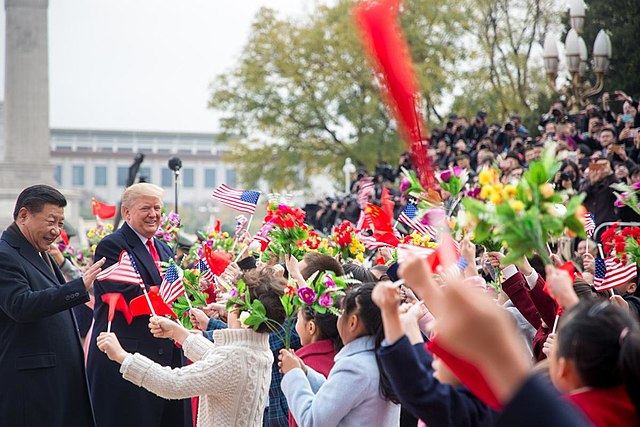Xi Jinping heads to Europe
March 19, 2019 | Expert Insights

The Chinese President will make state visits to Europe from this week as he seeks to bolster trade relationships on the continent while trying to end a trade war with the U.S.
Background
Xi Jinping s a Chinese politician serving as general secretary of the Communist Party of China (CPC), president of the People's Republic of China (PRC), and chairman of the Central Military Commission (CMC). Often described as China's "paramount leader" since 2012, he officially received the title of "core leader" from the CPC in 2016. As general secretary, Xi holds an ex-officio seat on the Politburo Standing Committee of the Communist Party of China, China's top decision-making body.
Xi has reportedly taken a hard-line on security issues as well as foreign affairs, projecting a more nationalistic and assertive China on the world stage. His political program calls for a China more united and confident of its own value system and political structure.
Xi has called China–United States relations in the contemporary world a "new type of great-power relations", a phrase the Obama administration had been reluctant to embrace. Under his administration the Strategic and Economic Dialogue that began under Hu Jintao has continued. On China–U.S. relations, Xi said, "If [China and the United States] are in confrontation, it would surely spell disaster for both countries".
China and the United States are engaged in a trade war as each country continues to dispute tariffs placed on goods traded between them. US President Donald Trump had declared in his campaign to fix China's "longtime abuse of the broken international system and unfair practices". The economic disputes occurred before China's entry to the World Trade Organization but the administrations of former Presidents George H. W. Bush, Bill Clinton, George W. Bush, and Barack Obama all failed to solve the problems. In April 2018, the United States filed a request for consultation to the World Trade Organization in regard to concerns that China was violating intellectual property rights.
Analysis
President Xi will travel to France, Italy and Monaco from March 21 to 26, 2019 China Foreign Ministry spokesman Lu Kang said Monday, as reported by the official Xinhua News Agency. The invitations were issued by French president Emmanuel Macron, Monaco’s leader Prince Albert II and Italian president Sergio Mattarella, Lu said.
Xi’s tour comes as European powers work to strike a delicate balance between concerns about Chinese influence with a desire for further investment. China last week vowed greater cooperation on Belt and Road ventures with U.S. and European firms, an attempt to counter growing criticism that the initiative aims to project Xi’s influence on host countries.
Italy has been split over whether to sign a memorandum of understanding to participate in Xi’s signature Belt and Road trade and infrastructure program, and is working to solidify accords with Chinese companies in areas from banking to energy.
The country’s willingness to consider doing business with China is fueling concerns in the U.S. and European Union about a G-7 country signing up for Belt and Road and allowing China’s interests into sectors like telecoms and ports.
France, meanwhile, has said it will impose new checks on equipment makers including embattled Chinese tech giant Huawei Technologies Co. The U.S. has also recently issued warnings about data theft sponsored by the Chinese state.
There has been speculation that Xi and U.S. President Donald Trump would meet this month to sign an agreement to end the trade war between the world’s two biggest economies, but that isn’t likely to happen until April at the earliest, three people familiar with the matter said.
Assessment
Our assessment is that President Xi’s visit to Europe is timed to coincide with the cooling down of the trade war. We believe that China is looking to use Europe as a hedge against any future hike in tariffs from the US. We also feel that by leveraging its influence over Europe, China could minimise the impact of a trade war by retaining Europe as a market and political ally.








Comments